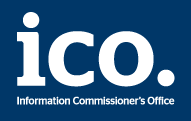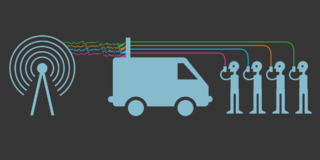Related Research Articles

Computer security, cybersecurity, or information technology security is the protection of computer systems and networks from information disclosure, theft of or damage to their hardware, software, or electronic data, as well as from the disruption or misdirection of the services they provide.

The Office of Communications, commonly known as Ofcom, is the government-approved regulatory and competition authority for the broadcasting, telecommunications and postal industries of the United Kingdom.
The Australian Communications and Media Authority (ACMA) is an Australian government statutory authority within the Communications portfolio. ACMA was formed on 1 July 2005 with the merger of the Australian Broadcasting Authority and the Australian Communications Authority.

Uber Technologies, Inc. (Uber) is an American mobility as a service provider. It is based in San Francisco with operations in approximately 72 countries and 10,500 cities. Its services include ride-hailing, food delivery, package delivery, couriers, freight transportation, electric bicycle and motorized scooter rental via a partnership with Lime, and ferry transport in partnership with local operators. Uber does not own any vehicles; instead, it receives a commission from each booking. Fares are quoted to the customer in advance but vary using a dynamic pricing model based on the local supply and demand at the time of the booking.

The Information Commissioner's Office (ICO) is a non-departmental public body which reports directly to the Parliament of the United Kingdom and is sponsored by the Department for Digital, Culture, Media and Sport (DCMS). It is the independent regulatory office dealing with the Data Protection Act 2018 and the General Data Protection Regulation, the Privacy and Electronic Communications Regulations 2003 across the UK; and the Freedom of Information Act 2000 and the Environmental Information Regulations 2004 in England, Wales and Northern Ireland and, to a limited extent, in Scotland.

Automatic number-plate recognition is a technology that uses optical character recognition on images to read vehicle registration plates to create vehicle location data. It can use existing closed-circuit television, road-rule enforcement cameras, or cameras specifically designed for the task. ANPR is used by police forces around the world for law enforcement purposes, including to check if a vehicle is registered or licensed. It is also used for electronic toll collection on pay-per-use roads and as a method of cataloguing the movements of traffic, for example by highways agencies.

Like transportation in the rest of the United States, the primary mode of local transportation in Portland, Oregon is the automobile. Metro, the metropolitan area's regional government, has a regional master plan in which transit-oriented development plays a major role. This approach, part of the new urbanism, promotes mixed-use and high-density development around light rail stops and transit centers, and the investment of the metropolitan area's share of federal tax dollars into multiple modes of transportation. In the United States, this focus is atypical in an era when automobile use led many areas to neglect their core cities in favor of development along interstate highways, in suburbs, and satellite cities.
Portland is "an international pioneer in transit orientated developments."
In politics, regulatory capture is a form of corruption of authority that occurs when a political entity, policymaker, or regulator is co-opted to serve the commercial, ideological, or political interests of a minor constituency, such as a particular geographic area, industry, profession, or ideological group.
A GPS tracking unit, geotracking unit, or simply tracker is a navigation device normally on a vehicle, asset, person or animal that uses the Global Positioning System (GPS) to determine its movement and determine its WGS84 UTM geographic position (geotracking) to determine its location.GPS tracking devices send special satellite signals that are processed by a receiver.

In the British Islands, any household watching or recording television transmissions at the same time they are being broadcast is required by law to hold a television licence. This applies regardless of transmission method, including terrestrial, satellite, cable, or for BBC iPlayer internet streaming. The television licence is the instrument used to raise revenue to fund the BBC; it is a form of voluntary taxation.

Traffic collision reconstruction is the process of investigating, analyzing, and drawing conclusions about the causes and events during a vehicle collision. Reconstructionists conduct collision analysis and reconstruction to identify the cause of a collision and contributing factors including the role of the driver(s), vehicle(s), roadway and general environment. Physics and engineering principles are the basis for these analyses and may involved the use of software for calculations and simulations. Collision reconstruction is sometimes used as the basis of expert witness testimony at trials. Collision reconstructions are typically performed in cases involving fatalities or personal injury. Results from collision reconstructions are also sometimes used for making roads and highways safer, as well as improving safety aspects of motor vehicle designs. Reconstructions are typically conducted by forensic engineers, specialized units in law enforcement agencies, or private consultants.

Travis Cordell Kalanick is an American businessman best known as the co-founder and former chief executive officer (CEO) of Uber. Previously he worked for Scour, a peer-to-peer file sharing application company, and was the co-founder of Red Swoosh, a peer-to-peer content delivery network that was sold to Akamai Technologies in 2007.

A ridesharing company is a company that, via websites and mobile apps, matches passengers with drivers of vehicles for hire that, unlike taxicabs, cannot legally be hailed from the street.

Cellphone surveillance may involve tracking, bugging, monitoring, eavesdropping, and recording conversations and text messages on mobile phones. It also encompasses the monitoring of people's movements, which can be tracked using mobile phone signals when phones are turned on.

The Portland Bureau of Transportation is the agency tasked with maintaining the city of Portland's transportation infrastructure. Bureau staff plan, build, manage and maintain a transportation system with the goal of providing people and businesses access and mobility. The Bureau received significant media coverage in 2017 for employee hazing within its maintenance operations.
Many communities, governments, and organizations have established rules and regulations that specifically govern ridesharing companies. In some jurisdictions, for-profit ridesharing operations are completely illegal. Regulations can include requirements for driver background checks, fares, the number of drivers, and licensing.

Biketown, also known as Biketown PDX, is a bicycle-sharing system in Portland, Oregon, that began operation on July 19, 2016. The system is owned by Portland Bureau of Transportation (PBOT) and operated by Lyft, with Nike, Inc. as the title sponsor. At launch, the system had 100 stations and 1,000 bicycles serving the city's central and eastside neighborhoods, with hopes to expand outward.

A scooter-sharing system is a shared transport service in which electric motorized scooters are made available to use for short-term rentals. E-scooters are typically "dockless", meaning that they do not have a fixed home location and are dropped off and picked up from certain locations in the service area.

The New York City Police Department (NYPD) actively monitors public activity in New York City, New York, United States. Historically, surveillance has been used by the NYPD for a range of purposes, including against crime, counter-terrorism, and also for nefarious or controversial subjects such as monitoring political demonstrations, activities, and protests, and even entire ethnic and religious groups.
Clearview AI is an American facial recognition company, providing software to companies, law enforcement, universities, and individuals. The company's algorithm matches faces to a database of more than three billion images indexed from the Internet, including social media applications. Founded by Hoan Ton-That and Richard Schwartz, the company maintained a low profile until late 2019, when its usage by law enforcement was reported on. Multiple reports identified Clearview's association with far-right personas dating back to 2016, when the company claimed to sever ties with two employees.
References
- 1 2 3 4 Joe Sullivan, Chief Security Officer at Uber (March 8, 2017). "An update on "greyballing"". Uber. Retrieved April 30, 2017.
- 1 2 3 4 5 6 7 8 9 10 11 Isaac, Mike (March 3, 2017). "How Uber Deceives the Authorities Worldwide". The New York Times . Retrieved April 30, 2017.
- 1 2 della Cava, Marco (March 8, 2017). "Uber admits its ghost driver 'Greyball' tool was used to thwart regulators, vows to stop". USA Today . Retrieved April 30, 2017.
- ↑ Timberg, Craig; Fung, Brian (March 3, 2017). "Uber's secret 'Greyball' program shows just how far it will go to get its way". Chicago Tribune . Retrieved April 30, 2017.
- ↑ Somerville, Heather (March 8, 2017). "Uber prohibits use of 'Greyball' technology to evade authorities". Reuters . Retrieved April 30, 2017.
- ↑ Levine, Dan; Menn, Joseph (May 5, 2017). "Exclusive: Uber faces criminal probe over software used to evade authorities". Reuters . Retrieved May 5, 2017.
- ↑ Dwoskin, Elizabeth; Timberg, Craig (May 4, 2017). "Justice Department opens criminal probe into Uber". The Washington Post . Retrieved May 5, 2017.
- ↑ Isaac, Mike (May 4, 2017). "Uber Faces Federal Inquiry Over Use of Greyball Tool to Evade Authorities". The New York Times . Retrieved May 5, 2017.
- ↑ Isaac, Mike (May 5, 2017). "Justice Department Expands Its Inquiry Into Uber's Greyball Tool". The New York Times . Retrieved May 6, 2017.
- ↑ Njus, Elliot (March 6, 2017). "Portland to investigate Uber's 'Greyball' scheme to thwart regulators". The Oregonian . Retrieved April 30, 2017.
- ↑ "Transportation Network Companies: Regulation Evasion Audit". Portland Bureau of Transportation. April 28, 2017. Retrieved April 30, 2017.
- ↑ Njus, Elliot (April 27, 2017). "Portland may subpoena Uber over regulator-dodging 'Greyball' software". The Oregonian . Retrieved 30 April 2017.
- ↑ "TFL decision on Uber London Limited". TfL. Transport for London. September 22, 2017. Retrieved September 22, 2017.
- ↑ "Uber has lost its licence to operate in London". Business Insider. September 22, 2017. Retrieved September 22, 2017.
- ↑ "Uber to begin appeal over London licence". BBC News. 2018-06-25. Retrieved 2018-06-25.